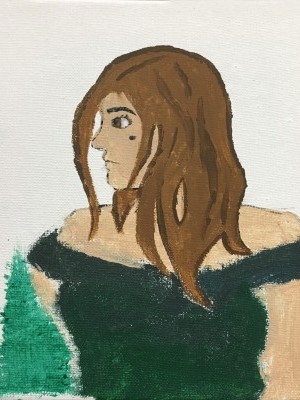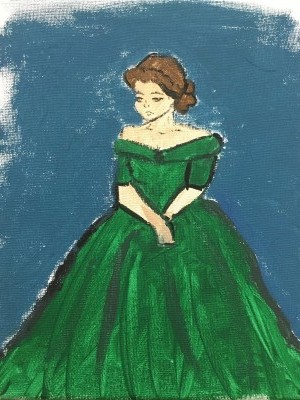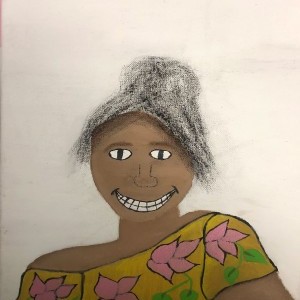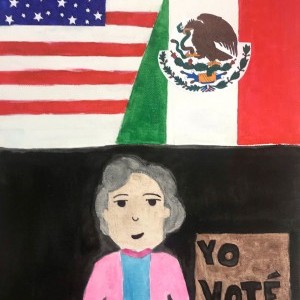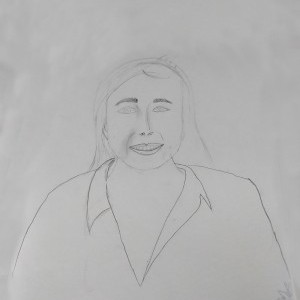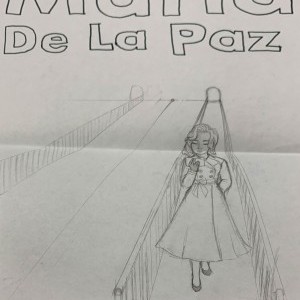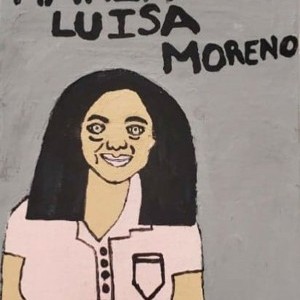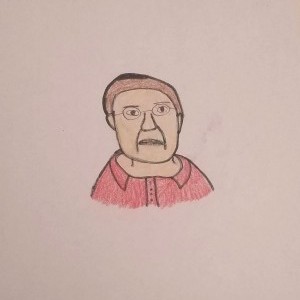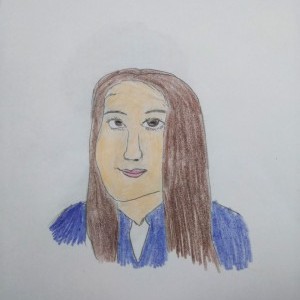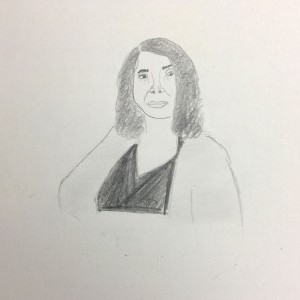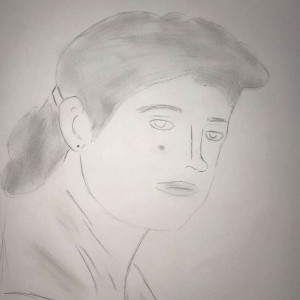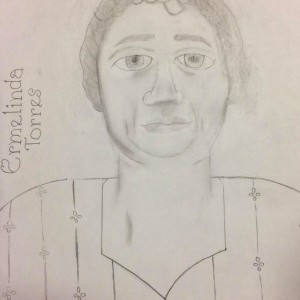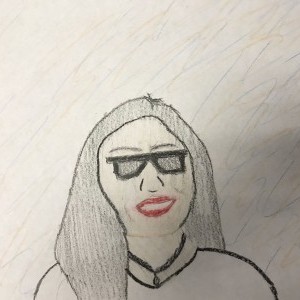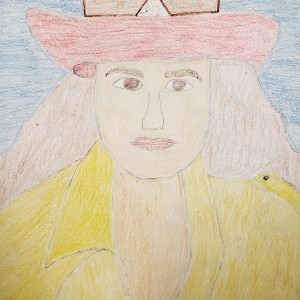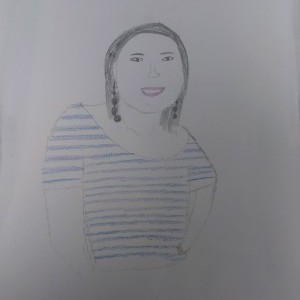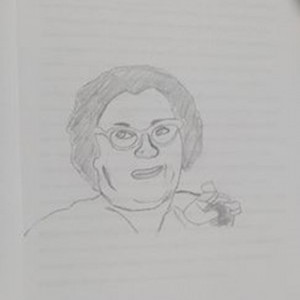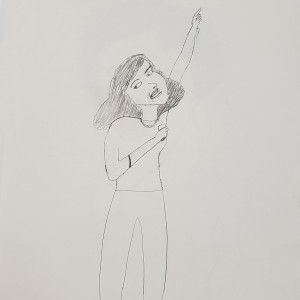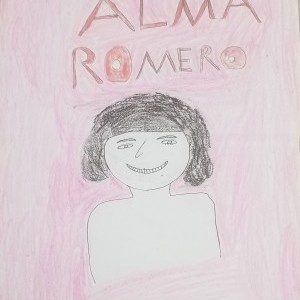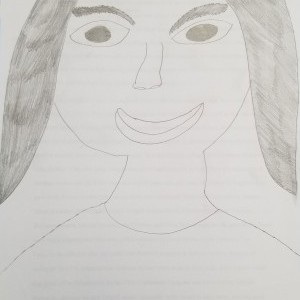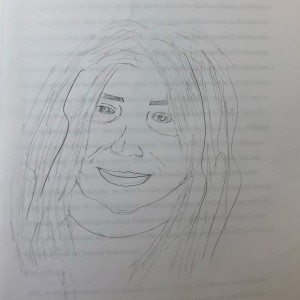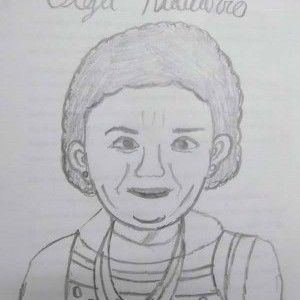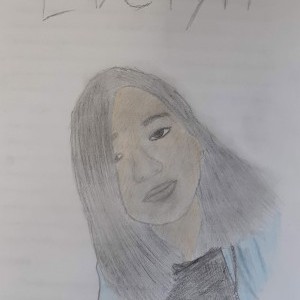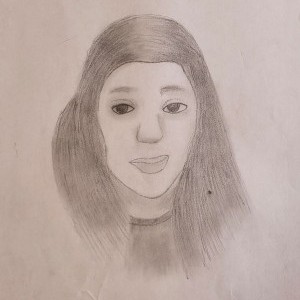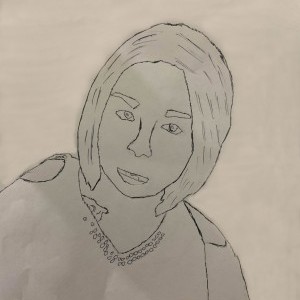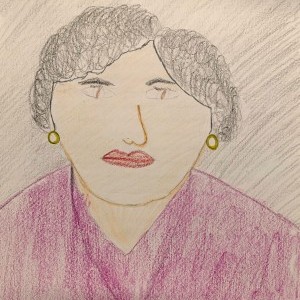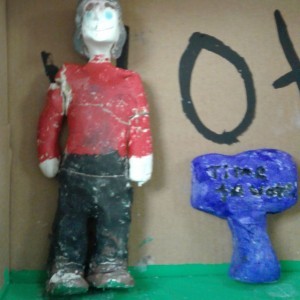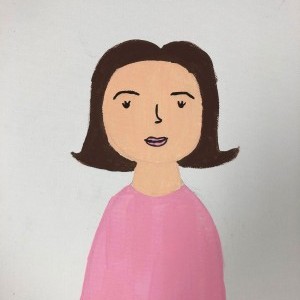Jessica Cortez
García Early College High School | Laredo, TX | 10th Grade
Inspirational Family Member
Karla, My Mother
Karla, my mother, was granted the ability to vote at the age of 18. My grandmothers were from Mexico and when they came to America, they had their children. This was within the five-year time frame it takes for a person to be considered a citizen.
My mother did not vote when she was first granted the ability to. At the time she had lived in Iowa for a year and a half with my father, Jesus. Many generations prior to her and my father, my ancestors lived in Mexico. Since my distant family has lived in poverty, we don't have many physical items that made it through the years. Cheap things won't last long. When my mother was younger, sometime during high school, she would help her parents run a small restaurant. She'd make tortillas by hand and cook a few dozens prior to her ride to school. When she would arrive home, she would help care for my two aunts, Rosie and Ceci. There was quite some conflict between my mother and her parents so I will not go into detail. Yet, before my mother had turned eighteen, she and my father decided to run away from home to live in Iowa. Many years later she had me, the first daughter. During the eight years that we resided there she would do many great things: donate blood, help others who were transitioning from English to Spanish, and she even gave the poor food if she could. Although it would sometimes be in vain. We then returned to Iowa when my sibling, Khloe, was only a few months old. Our grandmother's house would be our home for over five years until we could buy our own house.
Historical Figure I Admire
Mary Wollstonecraft
On April 27, 1759, Mary was brought to this earth by her mother and father, Elizabeth Dixon and Edward John Wollstonecraft. As she grew, her father was an abusive alcoholic while her mother could be described as harsh yet helpless. Even through her mother's neglect, due to favoritism for her male siblings, Mary stood up for her mother against the alcoholic unlike her brothers. I and many others believe this is where her strive for equality began. She was neglected by her mother as well and at the age of 21 her mother died, thus beginning her life as a writer and a teacher. Mary, her sister Eliza, and her closest friend Fanny went on to make their own school in Newington Green, London.
In the year 1785, Fanny had sadly passed away, allowing Mary to become a governess in Ireland. She found the work unfitting and returned to London. Once she became an adviser to Joseph Johnson, she was able to publish her first book “A vindication on the rights of women.” In this work she establishes the desire of women's education to be equal to men. These ideas were very controversial in her time. Not long after, she found her first lover Gilbert Imlay who was an adventurer and timber merchant. She then had her firstborn child who was named after her friend Fanny. She went on to publish two more books before Imlay left her. William Godwin, the founder of philosophical anarchism, was her second and final lover. Although the two disagreed with marriage due to their beliefs, Mary's pregnancy led to their wedding. As a result of complications with the birth of Mary Shelly, she died ten days after giving birth.
Even though she died in 1797, her ideas are still considered very interesting and almost revolutionary. She may have not impacted the world like Susan B. Anthony but considering the time she lived in she is still an amazing figure to this day. Mary may not have been very popular in her time but just like Edgar Alan Poe, their works will live on.
What the Project Means to Me
My mother and I conversed over how recent our title as Americans, and what we thought. She states that she wished our families could have come to America much sooner and have seen the northern states. This project has also caused us to realize that we should use our right to vote. Many people take it for granted and don't vote at all. I gained my information through oral interviews and, legal documents, with the help of my grandmothers and birthmother. It was rather difficult to find out who had these rights due to a language barrier with my elders, but it was great to have a new topic to speak about. I would say that those who come from Hispanic or non-American roots have more interesting tales of relatives who journeyed far to come to the United States.
Explore the Archive
More From This Class
Click on the thumbnails below to view each student's work.Deadline Extended
There's still time to join Women Leading the Way.
Become a part of our storytelling archive. Enroll your class today.
Join the Project

